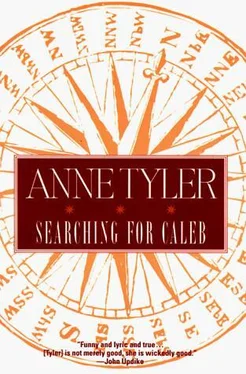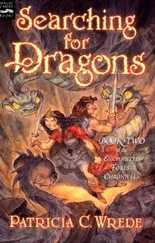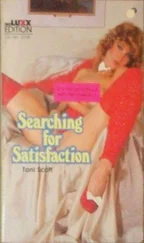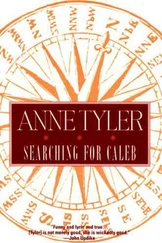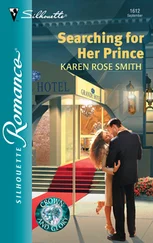Anne Tyler - Searching for Caleb
Здесь есть возможность читать онлайн «Anne Tyler - Searching for Caleb» весь текст электронной книги совершенно бесплатно (целиком полную версию без сокращений). В некоторых случаях можно слушать аудио, скачать через торрент в формате fb2 и присутствует краткое содержание. Жанр: Современная проза, на английском языке. Описание произведения, (предисловие) а так же отзывы посетителей доступны на портале библиотеки ЛибКат.
- Название:Searching for Caleb
- Автор:
- Жанр:
- Год:неизвестен
- ISBN:нет данных
- Рейтинг книги:5 / 5. Голосов: 1
-
Избранное:Добавить в избранное
- Отзывы:
-
Ваша оценка:
- 100
- 1
- 2
- 3
- 4
- 5
Searching for Caleb: краткое содержание, описание и аннотация
Предлагаем к чтению аннотацию, описание, краткое содержание или предисловие (зависит от того, что написал сам автор книги «Searching for Caleb»). Если вы не нашли необходимую информацию о книге — напишите в комментариях, мы постараемся отыскать её.
Searching for Caleb — читать онлайн бесплатно полную книгу (весь текст) целиком
Ниже представлен текст книги, разбитый по страницам. Система сохранения места последней прочитанной страницы, позволяет с удобством читать онлайн бесплатно книгу «Searching for Caleb», без необходимости каждый раз заново искать на чём Вы остановились. Поставьте закладку, и сможете в любой момент перейти на страницу, на которой закончили чтение.
Интервал:
Закладка:
Well, I thought he meant travel to town. I fix him hotcakes. I set out his breakfast and when he had done finished he thank me politely and left. I never did see him again."
She considered her fingernails, ridged and yellowed like old piano keys.
"Could I have that boardinghouse address?" Eli asked her.
"Yes, why surely," she said, and she gave it to him, slowly and clearly, having saved it up on purpose all these years, and he wrote/ it in his notebook. Then she faded off, so that Eli thought she ha/3 forgotten him.
He rose with care and tiptoed to the attic steps. He had already dipped one ankle into the coolness below when she called hi/m. "Mr. Whoever-you-are!"
"Ma'am?"
"When you tell how you found him," she said, "make certain/you put in that Sulie known the answer all along."
So now he had an address, but it was sixty-one years old. He knew he couldn't expect too much. He caught a plane to New Orleans that night. He took a cab to where a boardinghouse had stood in the spring of 1912. All he saw was a supermarket, lit inside with ghostly blue night lights, hulking on an asphalt parking lot.
"I reckon there's no sense hanging around," he told the cab driver.
Eli registered at a small hotel from which immediately, despite the hour, he called every Peck in the telephone book. No one had an ancestor named Caleb. He went to bed and slept a sound, dreamless sleep. On the following day, he set out walking. He picked his way past suspicious-looking hidden courtyards and lacy balconies, secret fountains splashing, leprous scaly stucco, monstrous greenery and live oaks dripping beards of moss, through surprising pockets of light where the air seemed to lie like colored veils. In various echoing buildings, archives both official and unofficial, he wandered gloomily with his hands in his pockets peering at yellowed sheet music, clippings, menus, and sporting-house directories under glass, as well as cases full of dented trumpets and valve trombones that appeared to have come from the dimestore. In the evenings he attended nightclubs, where, wincing against the clatter of brass and drums, he sidled between the tables to stare at the curling photographs on the walls and the programs once handed out during Fourth of July celebrations. There was no Caleb Peck. There was never that stiff, old-fashioned white man's face or Panama hat.
Eli's wife called, sounding lank and dragged out with the heat. "But it's hotter here," he told her. "And you ought to see the bugs." She didn't care; she wanted him home. What was he doing there, anyhow?
"I'll be back in another week," he told her. "In a week I'm going to have this thing wrapped up."
It was August eighteenth. Although he did not have a single new clue, he was beginning to feel excited.
Now he started shadowing the gaudy, sunglassed tourists, who seemed to know something he did not. They were always in possession of secret addresses: the lodgings of palsied old sax-hornists, clarinetists, past employees of the Streckfus Excursion Lines and granddaughters of Buddy Bolden's girlfriends. (Who was Buddy Bolden?) Eli slipped in behind them through narrow doors, into dingy parlors or taverns or bedrooms. Sometimes he was ushered out again. Sometimes he would pass unnoticed. Then he introduced questions of his own, all of them out of place:
"You wouldn't know a jazz cellist, by some chance."
"Any good musicians out of Baltimore?"
"Whereabouts were you in the spring of nineteen twelve?"
Ancient, dusty eyes peered back at him, but never ancient enough.
"Nineteen twelve? What kind of memory do you think I got, boy?"
By imperceptible degrees the Pecks had altered Eli. He had begun to ignore the passage of time, as if it were somehow common. He felt irritated that ordinary people could not do the same.
Days were tiresome, yes, and hard on the feet, but nights were worse. The string of clubs, bars, cafes, dance halls, and strip joints went on forever, and all the music sounded the same to him: badly organized. Eli slipped into a place and out again, into the next. He ducked away at any mention of cover charge, waved off waiters and hostesses. When pressed, he ordered Dr. Pepper; mostly he left before things had gone that far. The scent of success discouraged him. He wanted failure, spooky little hole-in-the-wall cafes. For surely, he was thinking now, Caleb himself was a failure. Whatever he had ended up doing, it had not left any mark upon this town.
He entered bars that smelled of mildewed wood, that had names like The High Note or Sportin' Life, where a few musicians played raggedly and without much interest. A black man sang above a guitar:
My train done left, Lord, done left me by the track, My train done left, Lord, done left me by the track. Tell the folks in Whisky Alley I ain't never coming back . . .
Eli shook his head. He slid past a drunkard and returned to the sidewalk, where he milled among the tourists in a greasy, neon-lit, garlic-smelling night.
The following morning, he was up unusually early. He ate breakfast in a coffee shop near where he had been the night before, and he strolled past the same bars, but they were closed now. Farther down, an aproned man was sweeping the entrance of a strip joint that looked cheerful and homely by daylight. "Tell me," Eli said to him. "You know that little old bar back there? Easy Livin'?"
The man squinted. "What about it?"
"You know what time it opens?"
"Most likely not till evening," said the man. "You got a wait, fellow."
"Well, thank you," Eli said.
This morning he did not delve any further into the archives of jazz. He bought a paper and read it in a park. He had a second cup of coffee and a glazed doughnut. Then when the movies opened, 'he toured the city catching Jimmy Stewart films. Eli very much admired Jimmy Stewart. , At six o'clock he had a plate of scrambled eggs in a diner, followed by another cup of coffee and apple pie a la mode, then he set off toward Easy Livin'-on foot, since it wasn't far. He took his time. He nodded soberly as he walked and he looked about him with $ well-meaning expression such as Jimmy Steward might have worn. When he reached his destination, he straightened his string tie before stepping through the battered door. , Easy Livin' was dark even now, when it was barely twilight. There was a bar with a brass rail, a few scarred tables, and at the end of the room a raw wooden platform for the entertainers. At the moment, there were no other customers. Only a boy behind the bar, and on the platform the black man who had sung the night before. He was squatting to hitch up some sort of electrical wire. He didn't even look around when Eli came up behind him, "Say," said Eli. "Could I ask about a song?"
The singer grunted and then rose, brushing off his dungarees. He said, "This here is not one of them jazz joints, baby. Go on up the street."
"Last night you were singing," Eli said.
"Only the blues."
"Ah," said Eli, who did not see the difference. He pondered a moment. The singer looked down at him with his hands on his hips. "Well," Eli said, "you were singing this here song I was wondering about."
"Which."
"Song about a train."
"All songs got trains," the singer said patiently.
"Song about Whisky Alley."
"Mm-hmm."
"You recall it?" Eli asked.
"I sung it, didn't I?"
"You know who wrote it?"
"Now how would I know that?" the singer said, but then, all of a sudden:
"Stringtail Man."
"Who?"
"The Stringtail Man."
"Well, who was that?"
"I don't know. White fellow."
"But he's got to have a name," Eli said.
"Naw. Not that I ever knew of. White fellow with a fiddle."
"A fiddle," said Eli. "Well-I mean, ain't that a little peculiar for jazz?"
"Blues," said the singer.
Читать дальшеИнтервал:
Закладка:
Похожие книги на «Searching for Caleb»
Представляем Вашему вниманию похожие книги на «Searching for Caleb» списком для выбора. Мы отобрали схожую по названию и смыслу литературу в надежде предоставить читателям больше вариантов отыскать новые, интересные, ещё непрочитанные произведения.
Обсуждение, отзывы о книге «Searching for Caleb» и просто собственные мнения читателей. Оставьте ваши комментарии, напишите, что Вы думаете о произведении, его смысле или главных героях. Укажите что конкретно понравилось, а что нет, и почему Вы так считаете.
